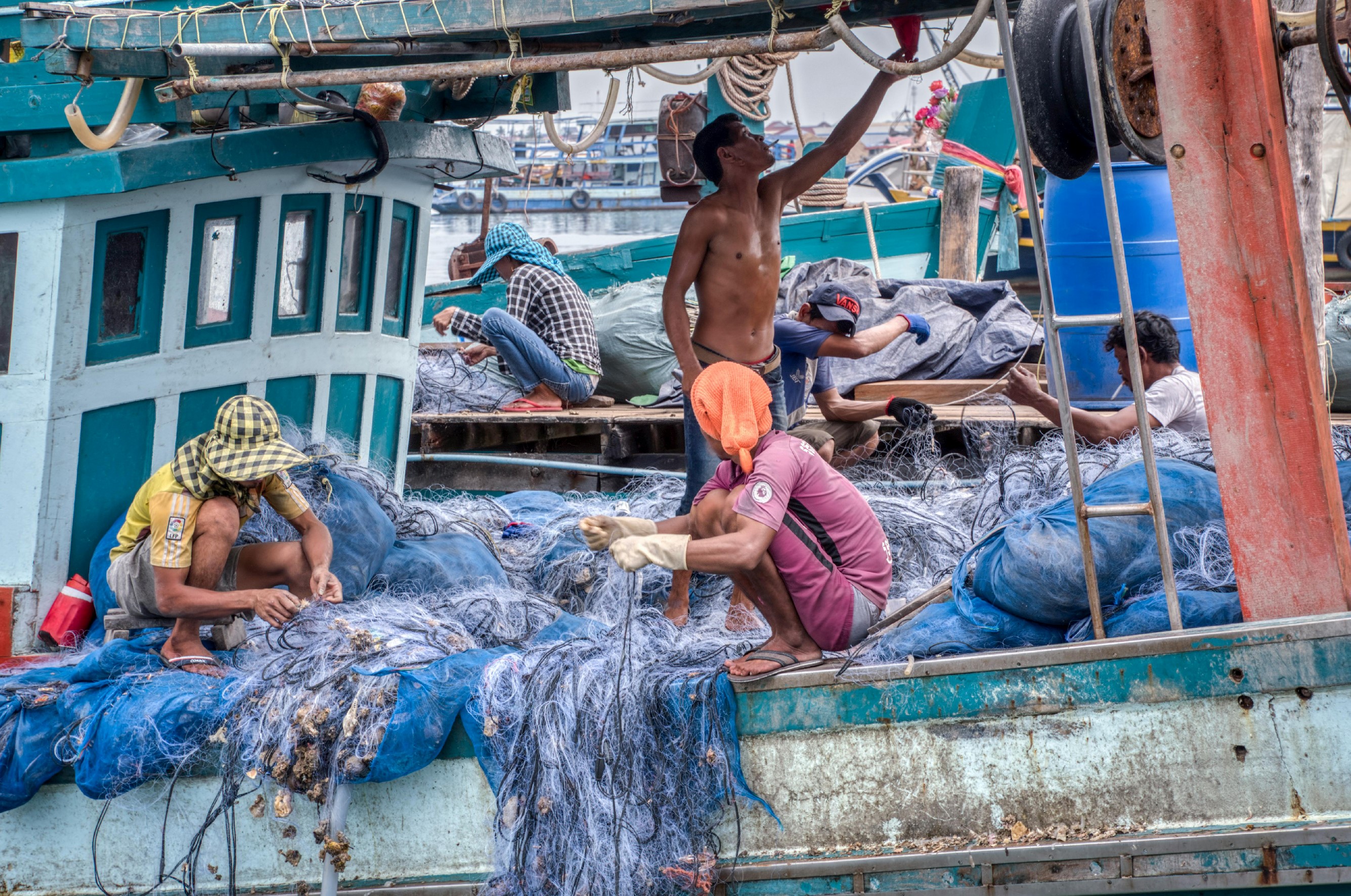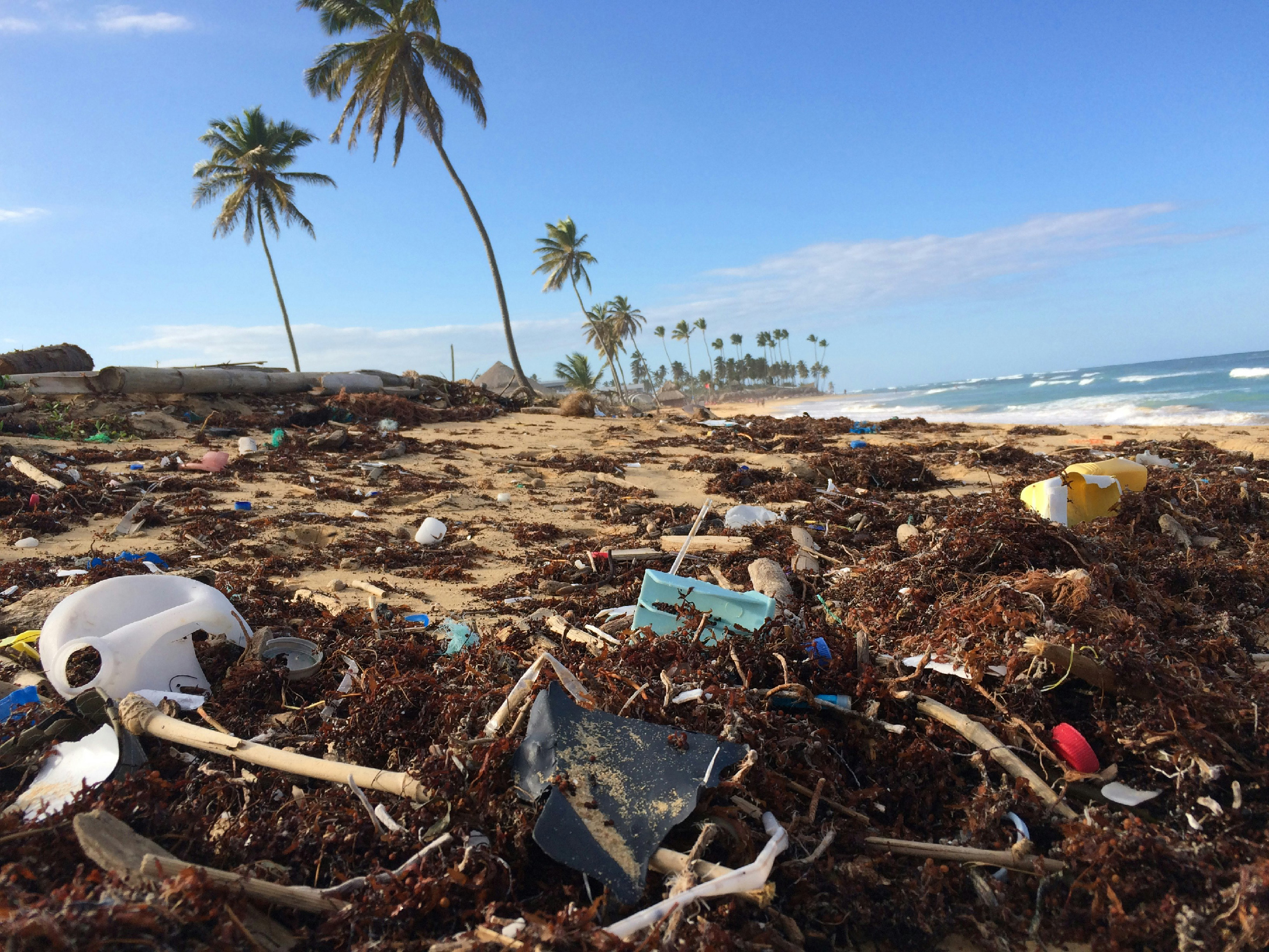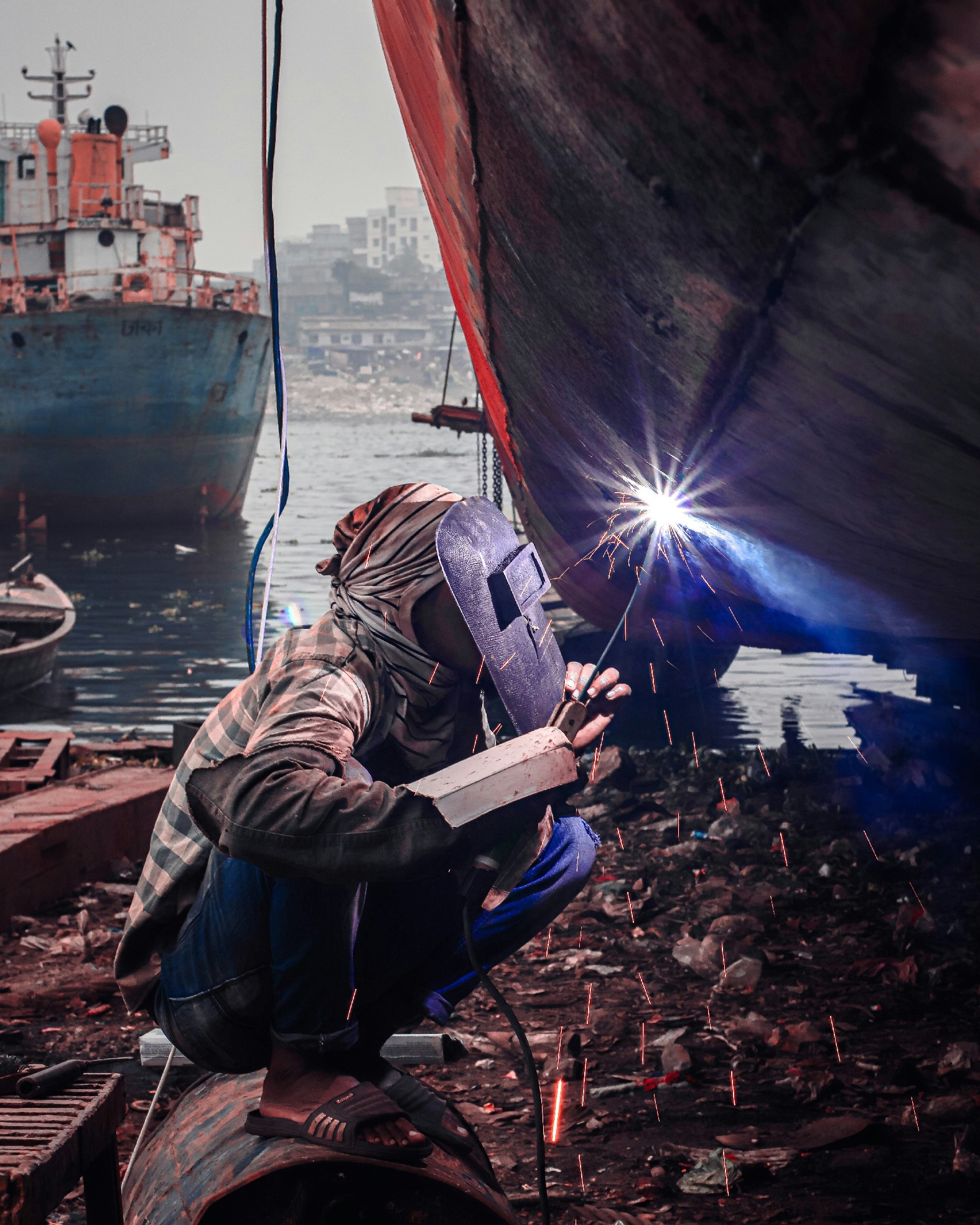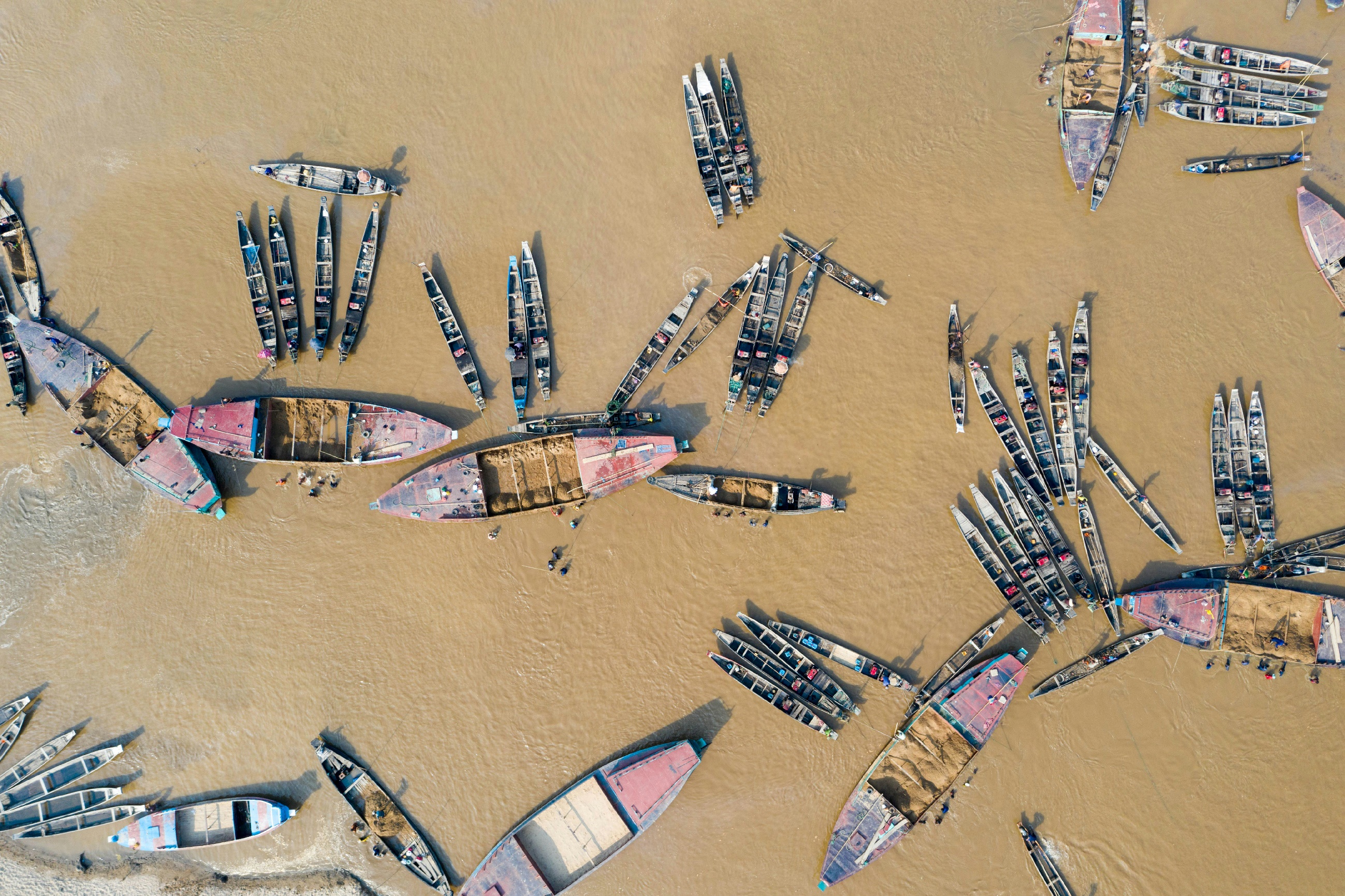Let's talk blue justice

30% of the world's population lives less than 100 kilometers from a coastline. The social repercussions of managing marine resources are thus significant stake to take into account. And yet, in the midst of an accelerating blue economy, people affected by the exploitation of the oceans have too often little say and few opportunities to take action. It's time to talk about blue justice.
The concept of blue justice
For the blue economy to be truly sustainable, it must consider its social impact. However, researchers from the University of British Columbia in Vancouver pointed out in a 2021 study that “the dominant discourse that frames blue growth as beneficial for the economy, developing nations, and coastal communities risks downplaying the uneven distribution of benefits and potential harms”. It was in countering this mainstream view of the blue economy that the concept of blue justice emerged.
The term entered the public discourse in 2018, when Professor Moenieba Isaacs denounced the exclusion and marginalisation of coastal communities at the World Congress of Small-scale Fishermen in Thailand. More broadly, blue justice refers to the recognition, inclusion and equitable treatment of all coastal populations with regard to access as well as management and use of ocean and coastal resources. This involves accepting their inherent right to benefit from a healthy, profitable and sustainable marine environment. The various international agreements, public policies and militant actions that are part of this perspective denounce a variety of injustices affecting different communities, starting with smallscale fishermen.

Small-scale fishermen's advocacy
Since the 1950s, the fishing industry has undergone profound changes. The increasing internationalisation of trade and technical developments have been widening the inequalities between small-scale fishermen and industrial fishing giants.
Today, protecting the activities and sovereignty of small-scale fishermen – those who fish with or without a boat of no more than fifteen metres – counts among the targets of the United Nations' Sustainable Development Goal (SDG) number 14: “Conserve and sustainably use the oceans”. Among other things, this target stipulates the need to “enable access by small-scale fisheries to marine resources and markets”.
However, the opposite trend is taking place. Too Big To Ignore (TBTI), an NGO established in 2013 and present in more than fifty countries, is one of the key international players on the subject. The organisation denounces the loss of access by small-scale fishermen to the resources they need for food security and well-being. Adding up to that comes economic benefits’ unfair distribution and their exclusion from governance. In the Antofagasta region of Chile, for example, small-scale fishermen have been dispossessed of the maritime areas that guarantee their livelihoods because of the infrastructure required for desalination projects.
According to TBTI, the first step towards greater blue justice is to raise awareness about the value and importance of small-scale fisheries. Contrary to popular belief, the latter represent a dynamic sector, employing 90% of the world's fishermen and catching between 50% and 70% of the world's seafood. They do so with a much smaller carbon footprint than the rest of the sector. In fact, they account for only 11% of the total fuel used for fishing worldwide compared with 89% for industrial fisheries. TBTI therefore advocates for strengthening the network of small-scale fishermen, putting policies and legislation that support them in place, and including them in decision-making.

Detoriation of living environments due to pollution and waste
Large populations at risk
Beyond small-scale fishermen, entire coastal communities can be negatively impacted by the blue economy’ growth. Mining, oil and gas extraction, coastal development such as urbanisation or port development for instance are all blue economy activities that can affect these communities next to industrial fishing.
Environmental injustices can be particularly blatant, whether in terms of living environments’ deterioration or health problems’ arising due to pollution and waste. The bays of Quintero–Puchuncaví, in Chile, are particularly clear examples of what is known as a “sacrifice zone” where communities’ quality of life is severely impacted in the name of economic profit. After becoming a hotspot to 15 heavy industries, including a copper smelter, an oil terminal, a household waste incineration plant and a coal-fired power station, in 2018, in one-month alone 1,400 residents had to be treated for gas poisoning.
These environmental injustices are sometimes combined with a violation of human rights through deplorable or even dangerous working conditions. On the coasts of Bangladesh and Indonesia, thousands of immigrant workers are responsible for dismantling ships. This means exposing these people to toxins such as asbestos, lead and heavy metals. In Thailand, conditions of modern slavery on fishing vessels have been denounced for several years now to no avail. According to a report by the Environmental Justice Foundation, in 2013-2014, 94% of the workers on the boats did not have contracts. 68% were victims of sexual or physical violence. And 59% reportedly witnessed the murder of a colleague. These are staggering figures...

The emergence of a blue resistance
All these injustices do not go unnoticed. Many are mobilising in various ways to make their voices heard. Some are demonstrating or using platforms to gain visibility. The Environmental Justice Foundation has created a video about deep-sea mining in the Clarion-Clipperton Zone, an area not far from Hawaii. It features Solomon Pili Kaho'ohalahala, a former Hawaii state representative and indigenous activist, who says: “It is important that we participate in these types of discussions. There is a seabed culture. I want to be the voice of our ancestors. I want to be the one to say that this is where we come from. This is our home. And you are interfering.” When decision-makers deny the central cultural role played by the ocean within certain indigenous communities, it is experienced as a very strong form of violence.
Legal action remains the best way to achieve success. The Ahousaht et al. against Canada case, which ended in 2009, enabled the Nuu-chah-nulth nations to establish aboriginal rights to harvest any species of fish (other than geoduck) on their territories and to sell these fish on the commercial market.

Setting limits for greater blue justice
Discussions on the blue economy’ potential must address its activities’ social impact on all stakeholders, first and foremost coastal communities. Rethinking governance models both at the international and regional level (for example, by filling gaps in international and geopolitical obligations) and at the (sub)national level would be an essential step towards greater blue justice.
Some are calling for targeted “blue growth”. In other words, a slowdown in maritime economic activities in given areas as soon as a depletion of resources ensuring food security and the well-being of coastal populations is being noticed. These voices, which are still dissonant, should be listened to carefully in the current chorus of enthusiasm for blue growth...
To be read also in the dossier "For a sustainable blue economy":


